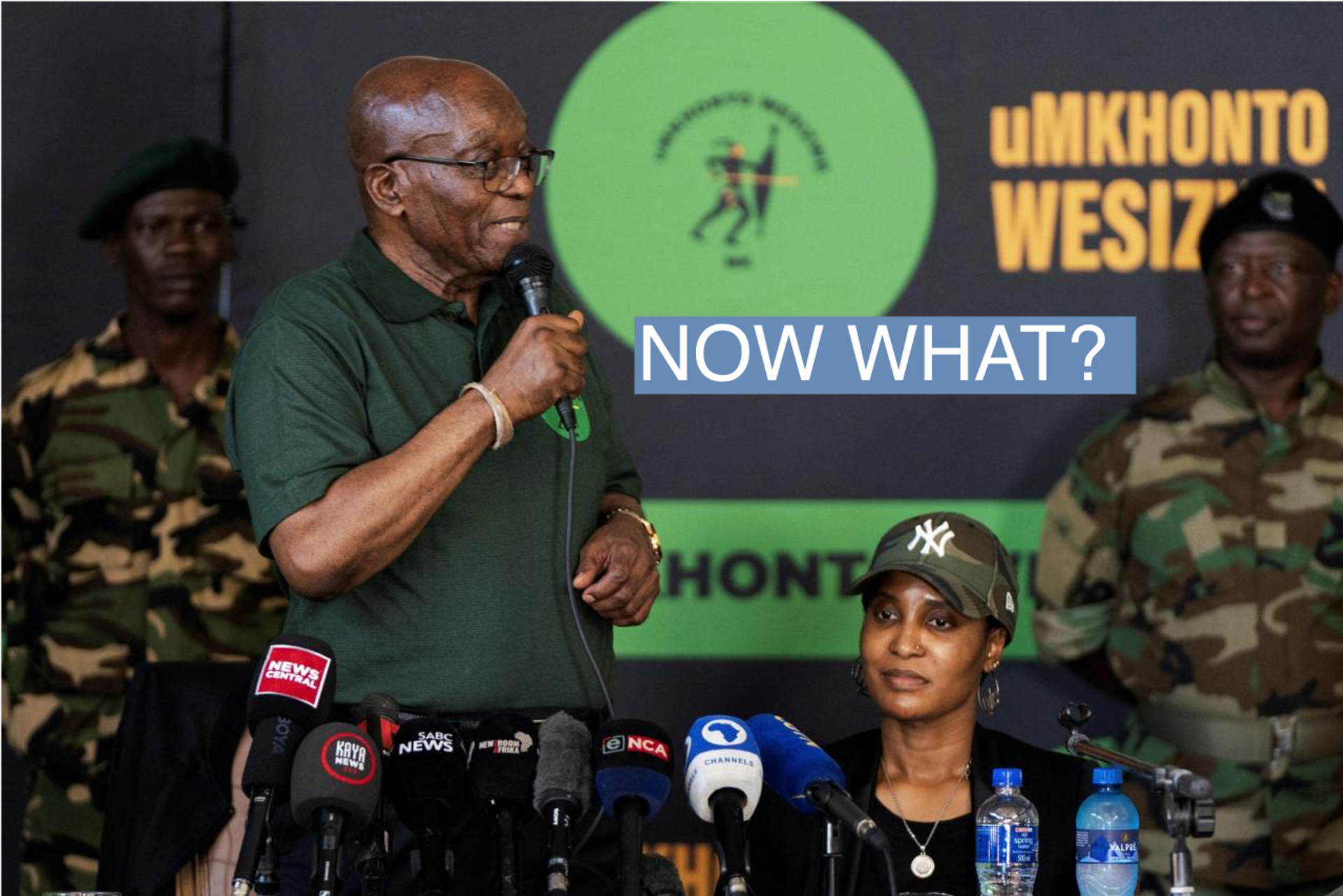The Scoop
JOHANNESBURG — The announcement by former South African president Jacob Zuma that he will not vote for the ruling African National Congress in next year’s elections has sparked disagreements within the party’s leadership over how to limit the impact of his move.
The ex-president, who on Saturday held a press conference in Soweto to announce the withdrawal of his backing for the ANC, also declared his support for the newly-formed Umkhonto we Sizwe party, which is named after the ANC’s now-defunct military wing. However, he remains a member of the ANC.
Semafor Africa spoke to four senior ANC officials who sought differing approaches. Some said they may call for his expulsion whereas others called for caution.
“Zuma has flouted party rules and the constitution by working against the ANC and announcing he would campaign for another party,” a party leader told Semafor Africa, speaking on condition of anonymity. “He has defined himself outside the party and should therefore be taken through a disciplinary action and be expelled.”
But another senior ANC figure, pointing to a different view, said Zuma had overestimated his popularity. “Ignoring him is a better strategy than expelling from the party, as action against him would make him a victim and he would exploit that,” the person said.
In this article:
Know More
Zuma, South Africa’s president between 2009 and 2018, resigned amid allegations of endemic corruption across government and state-run companies. He was succeeded by his deputy, Cyril Ramaphosa.
The former president was sentenced to 15 months in prison in 2021 after refusing to testify during a financial corruption investigation but was freed on medical parole after two months.
In his statement on Saturday, Zuma said the ANC, which was born out of the fight to end minority white rule of the apartheid era, was “one of the great liberations movements of our time”, but is “not the once great movement that we loved and were prepared to lay down our lives for.”
Zuma said the party had changed into an organization “we no longer recognise” that was expected to lose next year’s presidential and municipal elections after being the victim of a “deliberate plot to kill the ANC.”
Sam’s view
Jacob Zuma has lobbed a grenade into the ANC. Even before his vitriolic announcement, there was widespread agreement among analysts that the ANC risks losing its parliamentary majority for the first time since coming to power in 1994.
The government’s handling of Africa’s most industrialized economy is at the heart of grievances against the ANC. State companies have fallen apart in recent years. Problems at state energy utility Eskom have led to rolling blackouts becoming part of daily life. The impact of those power shortages on households and businesses has been compounded by a raft of issues at state-owned ports and rail company Transnet, which have drastically reduced the country’s income from exports — particularly mining.
South Africans, most of whom feel worse off than in previous years due to the travails of Eskom and Transnet, are also contending with high levels of violent crime and a water crisis that we, at Semafor, covered in a recent documentary. The reality is that, for all Zuma’s well documented flaws, many South Africans will agree with his assessment that the ANC isn’t the party it once was and has failed to transform the country in the way it promised at the end of the apartheid era.
Zuma is an effective political performer who remains influential, despite having been widely discredited over alleged state capture during his time in power. His credentials as an apartheid era freedom fighter, combined with an easy charm — for example, he has a great singing voice that he used to great effect when campaigning — can make Ramaphosa seem wooden in comparison. And Ramaphosa’s strongest feature, his record as a successful businessman, hasn’t been reflected in his handling of the economy.
The ex-president’s continued influence was clear in the riots of July 2021 that gripped several cities, killing at least 70 people, which followed him being jailed. The unrest was widely considered to have been orchestrated by the former president. While his influence has waned since then, his impact may be felt more in one of South Africa’s nine provinces, KwaZuku Natal, where the ANC could fall below 50% in next year’s election. This is where Zuma has the most appeal and one of the provinces in which the ANC may be most vulnerable.
The ANC has a tough choice: criticize him and risk amplifying his voice, or ignore him and face the possibility that social media platforms and the media will carry his message anyway.
The good news for the ANC is that the ex-president’s support for Umkhonto we Sizwe could help to split the opposition vote by taking supporters from the Economic Freedom Fighters, a Marxist party led by a firebrand Julius Malema, and the centrist Democratic Alliance (DA), which is the largest opposition party.
Notable
- John Steenhuisen was re-elected leader of the DA earlier this year but Al Jazeera asks whether a white politician could secure an election win for the party.

